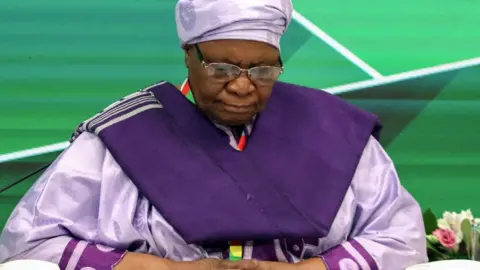Namibia is set to make history as it observes its inaugural Genocide Remembrance Day, marking the atrocities committed by German colonizers between 1904 and 1908—often referred to as "Germany's forgotten genocide." Historians recognize this period as the first genocide of the 20th Century, with over 70,000 Africans, primarily from the Ovaherero and Nama communities, systematically murdered for resisting colonial oppression.
The new national acknowledgement, established after years of advocacy, underscores Namibia's ongoing journey towards healing. Commemorations will include a minute's silence and candlelight vigil outside the parliament in Windhoek. The chosen date of May 28 commemorates the 1907 closure of concentration camps, which had faced international condemnation for their brutality, including pseudoscientific experiments and torture.
This observance follows Namibia's ongoing dialogue with Germany regarding reparations for the genocide, a conversation initially muted but gaining momentum when Germany formally recognized guilt four years ago. However, the €1.1 billion development aid offer made by Germany, discreetly labeled "aid" rather than reparations, was met with skepticism by many Namibians—including Ovaherero descendent and town councillor Uahimisa Kaapehi—who argue that monetary compensation fails to address the historical injustices of land and cattle confiscation.
The existing negotiations have seen proposals for a formal apology from Germany coupled with an additional €50 million in aid; however, some community leaders decry the negotiations as insufficient and devoid of genuine inclusivity, criticizing the exclusion of genocide descendants from these discussions. Community activists argue that true restoration requires the return of ancestral lands currently owned by the German-speaking population.
The historical backdrop reveals a complex narrative where Germany once demanded reparations from the Ovaherero and Nama people following their resistance against colonial forces, a financial drain estimated to be equivalent to between $1.2 million and $8.8 million today. This adds a layer of irony to Germany's hesitance in addressing reparations for its own genocidal past in Namibia.
The genocide commenced with an extermination order by German official Lothar von Trotha in 1904, which signaled the start of mass executions without exception or humanity. Subsequent abuses included the establishment of concentration camps where many died from exhaustion and maltreatment. Notably, the remains of victims were even shipped to Germany for discredited racial superiority research, portions of which have since been repatriated.
The path forward remains fraught, with Namibia voicing discontent over Germany's geopolitical alliances, particularly concerning support for Israel regarding genocide accusations at the UN. As the national day of remembrance unfolds, the quest for justice and acknowledgment continues, with many Namibians insisting on a reparative stance that reflects the true weight of their historical grievances.


















